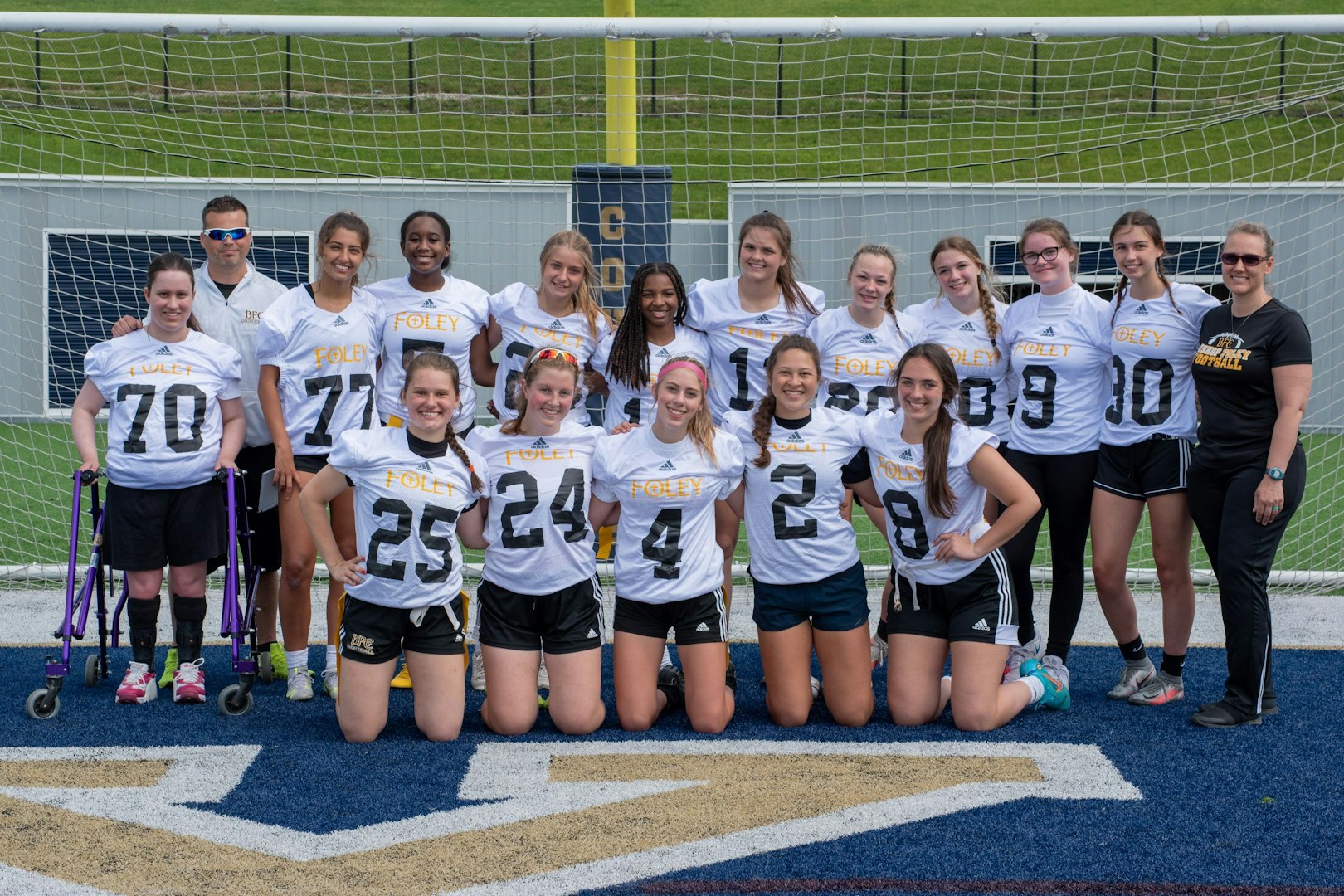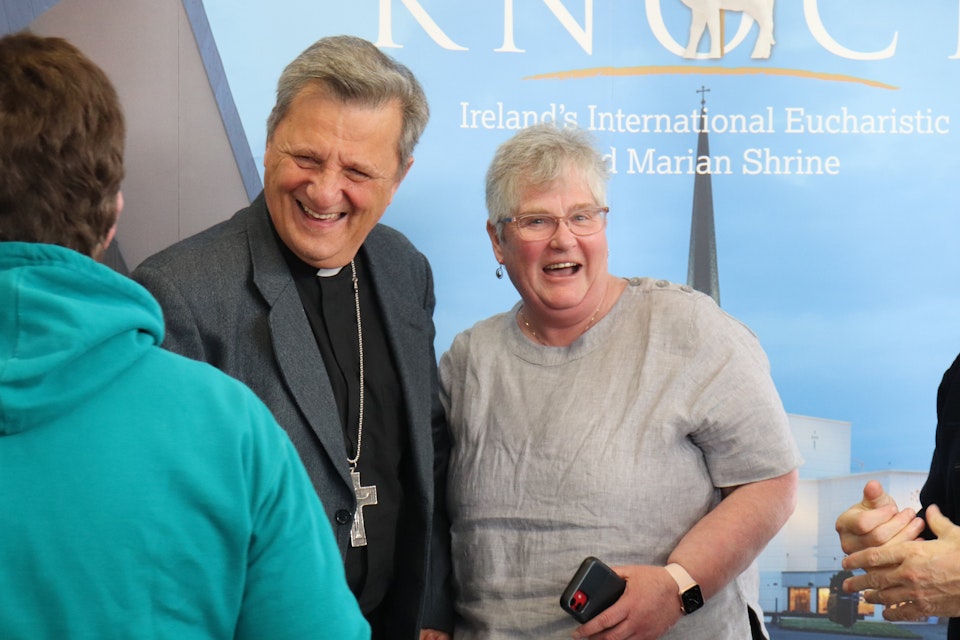Vast majority have offered in-person learning while tracing fewer than 600 cases — out of 29,000 teachers and students — since August
DETROIT — Since August, Catholic schools in the Archdiocese of Detroit have predominantly operated in-person classes, with the exception of a few independent schools and a state-mandated suspension of in-person learning in the weeks after Thanksgiving.
Just as importantly, they’ve kept COVID-19 at bay while doing so.
As of March 4, the Archdiocese of Detroit’s Office of Catholic Schools reported 594 cases out of approximately 26,000 students and 3,000 staff — a 1.71% positivity rate, with 425 positive cases being students — since the academic year began.
The office further reported no “outbreaks,” where four or five cases could be linked to one classroom, occurred in an archdiocesan classroom.
“Our schools have followed the roadmap that was put in place last June to safely return to in-person learning,” Vic Michaels, assistant superintendent of student services and athletics for the Archdiocese of Detroit and a member of Gov. Gretchen Whitmer’s Student Recovery Advisory Council, told Detroit Catholic. “I give a ton of credit to our principals who put this plan in place. We’ve been able to teach in person pretty much since the beginning.
“What we’ve found is that these positive cases have not been occurring in school,” Michaels added. “These are kids who mainly get them from moms and dads who get the virus from work or social activities.”

University of Detroit Jesuit High School and Academy has taken coronavirus transparency to the next level with a webpage that tracks the number of new positive tests reported. The dashboard reports all COVID-19 positive cases of students, faculty and staff that could be school associated or non-school associated.
Students, faculty and staff answer health questions on their phone to flag potential cases, said Dr. Deborah Wolfe, school health professional at U of D Jesuit.
Once a positive case is identified, Dr. Wolfe does contact tracing at the school, asking family members if the students visited with other students over the weekend or when on a trip. Since August, the school has identified just 48 positive cases, none of them school-related.
“Our parents have been wonderful and have been very transparent, having open communication with us,” Dr. Wolfe said. “In looking at what’s gone on over the course of the year, our cases aren’t related to school. They are related to the community nature of COVID.”
At the elementary level, school principals have commended parents for keeping their children home from school when they are sick or showing symptoms and committing to precautions to ensure students can continue in-person learning.
St. Valentine School in Redford Township had just one reported case of COVID-19 in the community — from a student who elected to do remote learning this year.

“I really, again and again, have communicated and stressed to parents and families in the community that yes, masks are important, sanitizing is important and students not mixing is important, but the biggest thing that has made the difference is the family support we are getting,” said Rachel Damuth, principal at St. Valentine School.
“We told parents, ‘If your child has even a sniffle, they have to stay home,’” Damuth said. “They kept them home. We’ve had very few colds, very few of anything running through our building. Even though it was a hardship for our parents, because they couldn’t go to work if their child stayed home, they didn’t send their children to school if they had any symptoms all year, and they were very supportive.”
In the beginning of the school year, parents were unsure about sending their children back to in-person classes, but as the school year went on, Damuth said more and more parents became confident in the measures the school was taking.
“In the beginning, we had 60 learning from home (out of 150 students), but now we’re down to 28,” Damuth said. “As families became more comfortable and saw there wasn’t an increase in cases, they started asking to come back. Some families have more serious health concerns, and those tend to be the ones who are still home. It was one-third in the beginning, but now it’s just a small little group.”
Dr. Wolfe echoed those sentiments, saying the measures taken to ensure safety, coupled with data showing schools aren’t prominent spreaders of the virus, encouraged parents that in-person instruction was safe.

“Parents can feel confident in sending their child to school in an environment where there is greater control, enforced spacing and mask wearing,” Dr. Wolfe said. “When I see a student, I say, ‘Hey honey, can you put your mask up?’ In the school environment, there is control, there are people who are going by and doing those gentle reminders that we all could use.
“People can feel comfortable sending their kids to school; especially to schools that have put in place protocols and policies to facilitate that safety to mitigate the risk of spread; I’d feel comfortable sending my son to school here,” Dr. Wolfe added.
Before the school year started, Damuth and her teaching staff weren’t sure St. Valentine would make it through the entire year without having to go remote.
But save that brief stint in November, the school has operated in person, just recently passing the 100-day mark — usually a benign accomplishment, but after last March, every day, every week and every month of safe learning is an achievement.
“I knew what we were doing could work, but I told my parents and teachers that if we got to a point where I thought this was unsafe, I would send us back to virtual,” Damuth said. “And I never felt our kids were unsafe or our teachers were unsafe. I never felt this would lead to a spread we couldn’t control or that we needed to go virtual.
“Every elementary school celebrates 100 days of school, but to make it this year, that was something,” Damuth added. “We made it to 115 days, not that we’re counting. I’ve never thought about what week in school it was before, but this year, we had 24 weeks without a case. It makes me so proud of the community.”
Detroit Catholic editor Michael Stechschulte contributed to this report.









